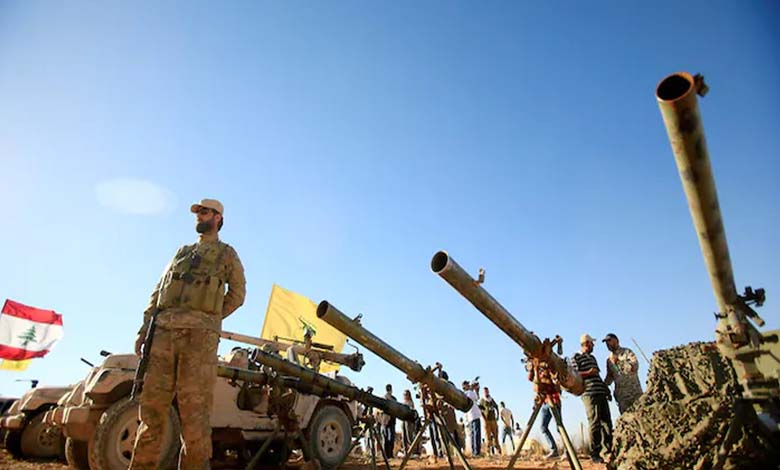Hezbollah resists internal and external pressure to disarm

Hezbollah Secretary-General Naïm Qassem declared on Wednesday evening that the party rejects any Israeli involvement in Lebanon’s internal discussions regarding weapons, emphasizing that Hezbollah “will not hand over its weapons to the Israeli enemy.” His statement signals the party’s firm stance on retaining its arms, despite internal challenges, Iranian-backed losses, and reports of U.S. pressure setting a possible disarmament deadline by November.
-
After a Defeat… Hezbollah Now Ties the Decision to Go to War to the Lebanese State
-
Israel strikes Hamas, Hezbollah, and Houthi “weapons supply line” in Iran… Who is Behnam Shahriari?
Qassem’s remarks followed a statement earlier that day by a Lebanese official—who requested anonymity—saying that American envoy Tom Barak had presented a proposal to Beirut in June focused on three main points, the first being the withdrawal of weapons and their restriction to the Lebanese state.
Speaking during a religious ceremony marking the nights of Muharram in Beirut’s southern suburbs, Qassem said: “There are domestic issues in Lebanon, such as the weapons debate, which we handle and resolve among ourselves. Israel has no business interfering in our agreements, supervising them, or monitoring their content.”
-
Israel Warns Naim Qassem: There Will Be No Hezbollah in That Case
-
Lebanon Dismantles Hezbollah Network with Israeli Support
He added: “There’s an indirect agreement with Israel via the Lebanese state—Israel must respect this agreement.”
On October 8, 2023, Israel launched a war on Lebanon, which escalated into a full-scale conflict on September 23, 2024, resulting in more than 4,000 deaths and nearly 17,000 injuries. A ceasefire between Hezbollah and Israel began on November 27, 2024.
Qassem stated: “Our internal affairs are ours to manage. Others have no right to intervene. They want to impose their will on us with threats and force—but threats and force won’t work with us.”
-
Hezbollah’s Footprints in the Heart of Sanaa: Ṣarif Explosion Exposes Iran’s Missile Network
-
Hezbollah courts Trump with a language of interests: from the Great Satan to investment opportunities
He asserted: “We are a people who refuse humiliation, we will not surrender our land, we will not hand over our weapons to the Israeli enemy, and we will not yield under pressure—because we will not abandon our rights, which are protected by divine laws and international norms.”
He also accused Israel of committing “more than 3,700 violations” of the ceasefire agreement.
Since the end of the Israeli war on Lebanon—backed by the United States—Western pressure has mounted, particularly from Washington, to disarm Hezbollah. The party, however, maintains that it will retain its weapons as long as Israeli occupation continues.
-
How Did Israel Target Hezbollah Leaders? Details Emerge to Unveil the Mystery
-
Religious Chant Leader Accused of Spying for Israel and Bringing Down Hezbollah Officials
In defiance of the ceasefire terms, the Israeli army has only partially withdrawn from southern Lebanon and continues to occupy five strategic Lebanese hills captured during the recent war. Israel has long maintained control over occupied territories in Lebanon, Syria, and Palestine.
On July 19, U.S. envoy Tom Barak visited Lebanon and met with key officials, including President Joseph Aoun, to discuss regional and domestic matters.
-
Hezbollah’s Violations Rekindle Tensions at the Syrian-Lebanese Border
-
Disarming Hezbollah is closer than Ever
According to a statement from the Lebanese presidency, their discussions included “the measures Lebanon is taking to achieve the principle of exclusive state control over arms.”
In April, Aoun had stated that the disarmament of Hezbollah would require “dialogue” and that Lebanon was awaiting “favorable conditions” to define how this would be implemented.












